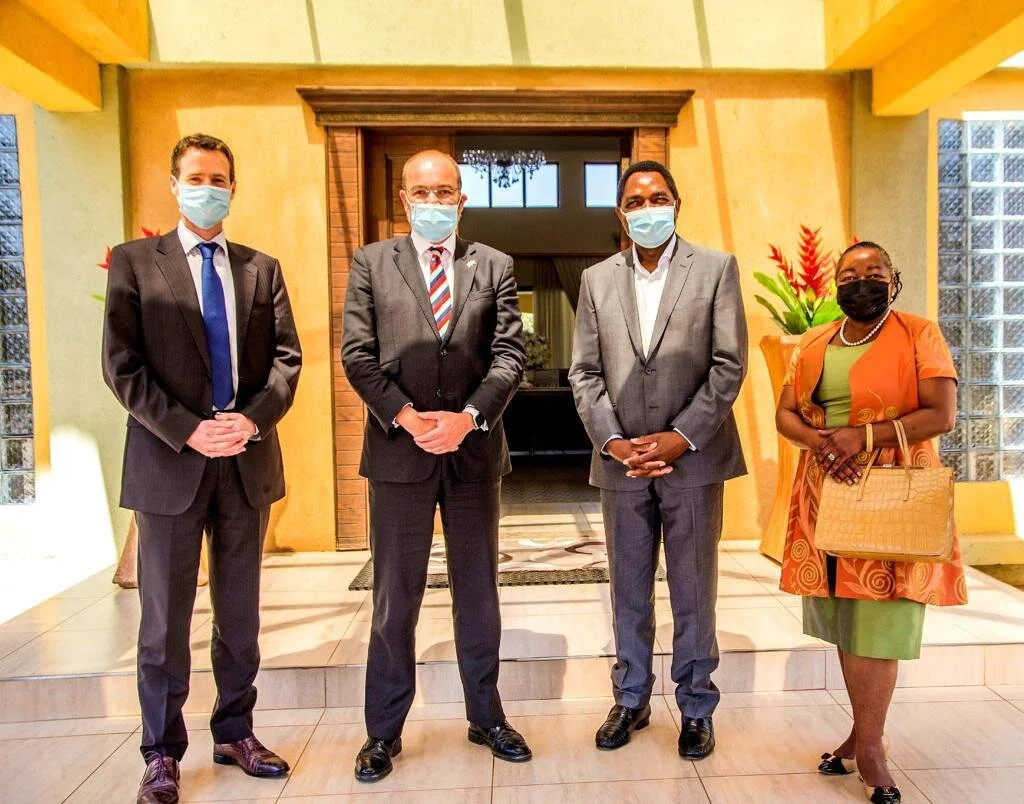This week, Zambia’s newly elected President Hakainde Hichilema is canvassing the United Nations General Assembly – and later Washington, DC – to discuss his vision for the country following his landslide win in an election that had a voter turnout of more than 75%. Hichilema is on a mission to share his belief in the power of democracy and to entice the world to a Zambia that is now open for business, following years of corrupt and autocratic rule. Given what his administration has inherited, Hichilema must also convince Zambia’s global partners that his government will once again be a stable, reliable partner in the realms of commerce and business, but also regional security and international relations.
Given Hichilema’s unprecedented upset victory – and the peaceful handover of power that has become the norm in Zambia – pundits of democracy should deeply examine this country. There must be something special about a nation in which the rules of democracy have consistently prevailed, despite the myriad obstacles over the years.
Perhaps more importantly – considering this democratic opening – we must look forward while drawing on lessons of the past to build a Zambia that meets its potential. For Hichilema and his new government, this should start with replacing the politics of patronage in favor of a politics of principle and ideology. You speak to most Africans today and they will tell you that leaving their home country is Plan B. Plan A, on the other hand, is to build a future in Africa with their family, friends, and colleagues. Unfortunately, however, Plan B has too often and increasingly been upgraded to become Plan A. This is because many of Africa’s leaders, both past and present, have utterly failed its people.
As is true for people across the world — regardless of which continent they call home — African populations want a future that is premised upon hope. Africans in Africa hope for new beginnings that signify opportunity, equality, transparency, security, and upward economic and social mobility – these are the critical tenets of a sustainable democracy in which the voice of the people carries the day. For Zambia – and for Africa writ large – to meet its vast potential, then, a future must necessarily be constructed upon a foundation in which these values are not vested or otherwise dependent on an individual, but rather ingrained in the ideology and philosophy of the governance system. This is the major challenge facing President Hichilema today, as well as other upstart democratic leaders in the region.
A related challenge for this type of governance is to both recognize and appreciate the interrelationship between the pressing global issues of today – climate change, the paucity of inclusion, the gender disadvantage, and forgotten youth populations – to democratic governance (or lack thereof). Democracy is the all-encapsulating philosophical lever through which societies can most effectively address these social ills, and others, that inevitably lead to insecurity, for example. In Africa, if we had truly authentic democracies, with democratic leaders at the helm, we would necessarily have a collective appreciation that then drives leadership to have strategic plans that will counter these dynamic issues.
In other words: Democracy is not a finite game. It is not static. And it is never an individual’s game.
Democracy, at its core, is an infinite exercise. The objective is staying in the game and continually pushing towards the goal post. It is a game in which the incumbent president of a country gives the electorate a license to operate and the power to speak out against corruption and other forms of bad governance. By extension, therefore, democracy cannot be anchored around an individual. Its innate power lies in the exercised power of the people, which, at its very best, exists as an interplay with its elected leaders.
Democracy is not owned by a government or by geopolitical partners. True democratic rights, and their collective power, resides in a citizen’s ability to exercise it.
So, let us take stock of this major victory in Zambia – now embodied by President Hichilema – to recognize that the power of the people must rule the day. We must constantly remind Zambia’s leadership that democratic rights matter and that the youth generation (who turned out in droves to vote) must be included and empowered. In this way, democracy will be institutionalized for the long-term, standing the test of time well beyond the singular leadership of President Hichilema. It is up to all of us – as Zambians, and as those concerned with democracy and development more broadly – to jealously guard this victory but also to advance this crucial agenda for the long-term and for the benefit of the African continent.
Dolika Banda is a member of Vanguard Africa’s advisory council, a longtime good governance advocate, and a renowned expert in development finance and global capital market development

